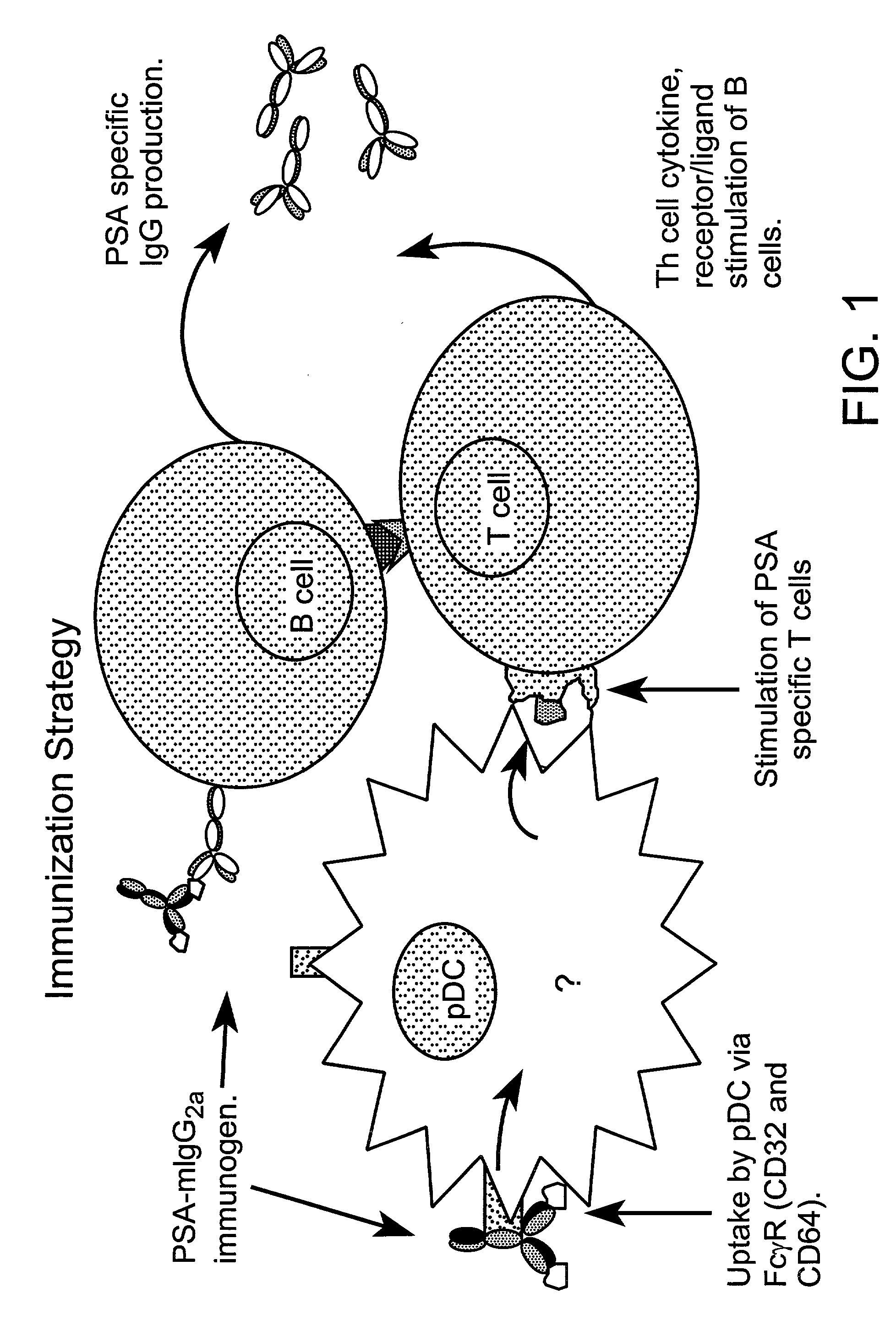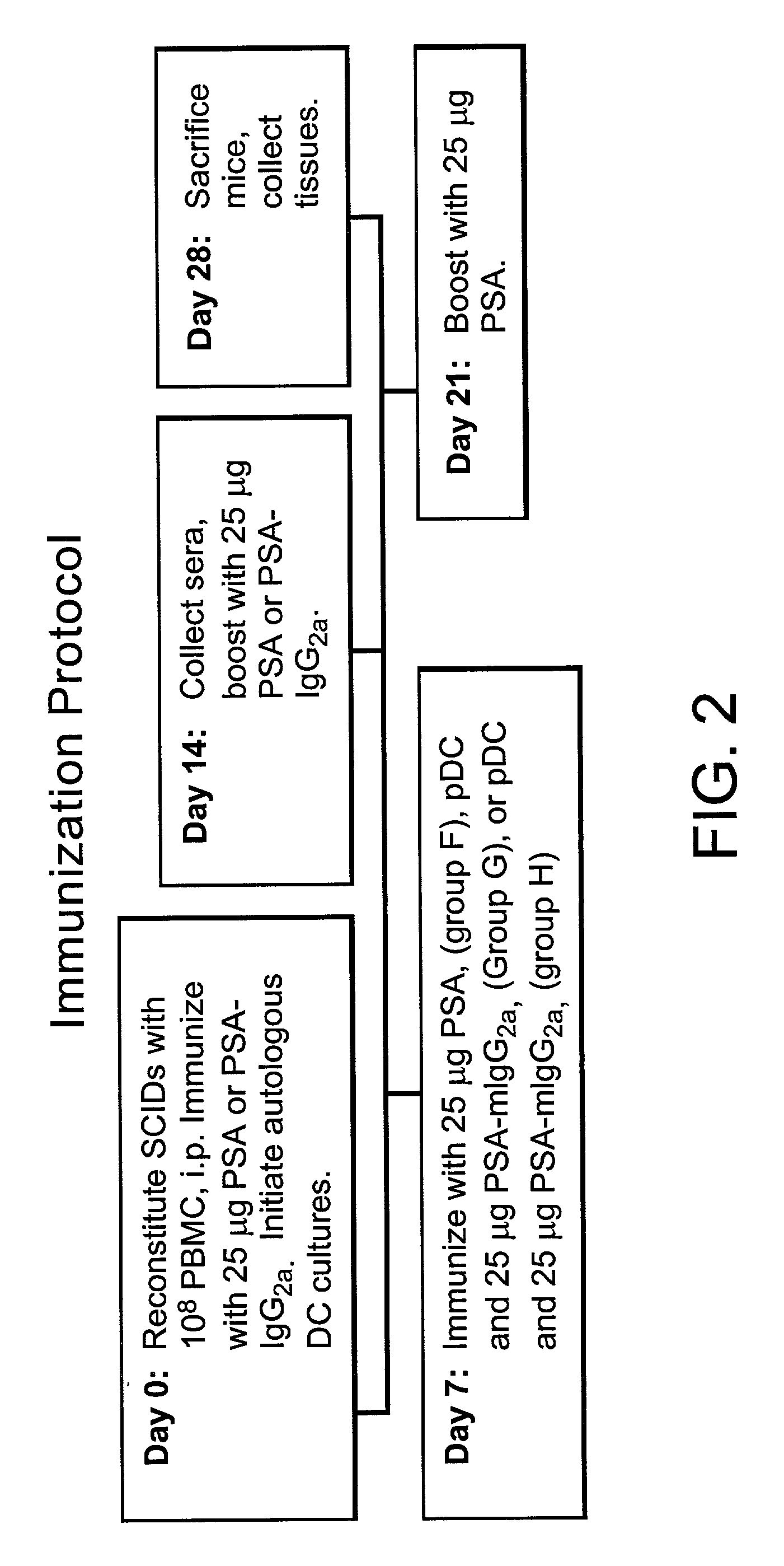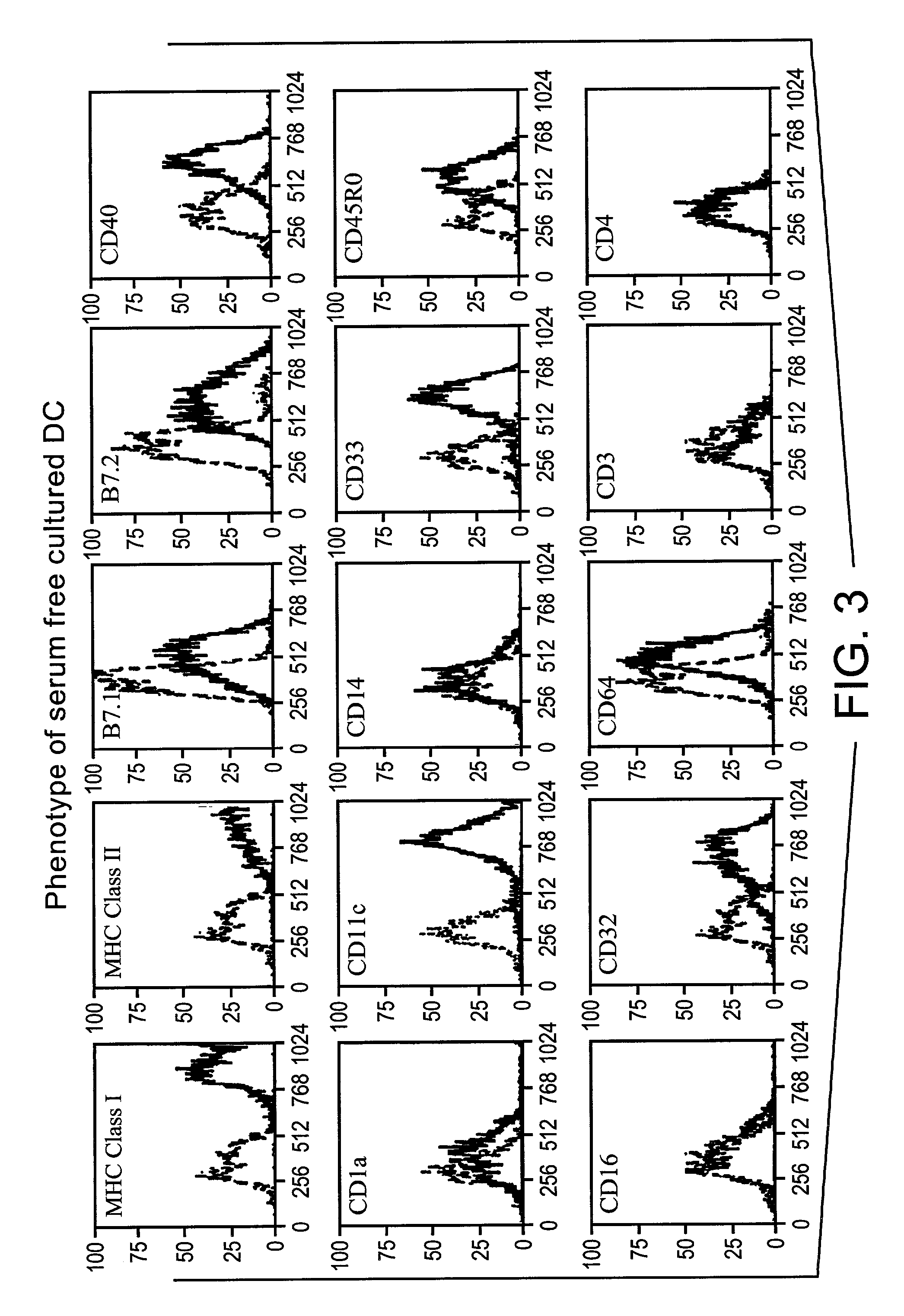Method for producing human antibodies in SCID mice which uses dendritic cells pulsed with antigen-antibody complexes and antigen-antibody complexes as immunizing agents
a technology of dendritic cells and antigen-antibody complexes, which is applied in the field of producing human antibodies in scid mice, can solve the problems of complex previous methods, and achieve the effects of increasing the immunogenicity of the antigen, rapid production of fully human monoclonal antibodies, and inherent unpredictability of monoclonal antibody manufactur
- Summary
- Abstract
- Description
- Claims
- Application Information
AI Technical Summary
Benefits of technology
Problems solved by technology
Method used
Image
Examples
example 1
[0044] Human IgG Production in DC / Ab-PSA Complex Immunized SCIDhu PBL Mice Mouse Monoclonal IgG
[0045] Antibody (Cat. No. 10-P20; Fitzgerald Industries Inc.) was complexed with PSA at equimolar ratios at 4.degree. C. over night (Ab-PSA complex) and then dialyzed to remove azide. Autologous peripheral blood dendritic cells (pDC) were grown in serum free media and pulsed with either 25 .mu.g / ml soluble PSA or Ab-PSA complex. All mice received 10.sup.8 PBMC i.p. on day 0. Each group consisted of 8 mice. Group F mice were immunized with 25 g of Ab-PSA complex weekly and with 25 .mu.g PSA on Day 21. Group G mice were immunized with 25 .mu.g of soluble PSA weekly and 7.times.10.sup.6 soluble PSA pulsed pDC on day 7. Group H mice were immunized with 25 .mu.g of Ab-PSA complex weekly, 7.5.times.10.sup.6 Ab-PSA pulsed pDC on day 7 and then 25 .mu.g PSA on Day 21. These results are summarized in FIG. 6. The Day 14 results, (A) Graphs, from left to right are as follows: Average PSA specific IgG...
example 2
[0050] Specificity of Antibody Responses Obtained in Ab-PSA / pDC Immunized SCIDhu PBC Mice
[0051] In this Example, the relative PSA specificity of pooled sera from group H mice, control hIgG and group F serum is measured and was shown in FIG. 5.
[0052] FIG. 5 shows relative PSA specificity of pooled sera from group H mice, control hihg and group F serum. In this Figure, open circles represent pooled group H serum, and closed circles purified hIgG. The open triangles represent mouse F1.1 serum. The data shows that group H serum binds PSA 10 times greater than equal concentrations of either control hIgG. Panel B shows the inhibition of group H sera specific binding by soluble PSA. The open circles represent pooled group H serum diluted 1:15 (120 .mu.g / ml). The closed circles represent pooled group H serum diluted 1;20 (90 .mu.g / ml). The open triangles represent purified hIgG control, (90 .mu.g / ml). The data shows that pooled group H sera binding can be inhibited by soluble PSA to OD.sub....
PUM
| Property | Measurement | Unit |
|---|---|---|
| concentrations | aaaaa | aaaaa |
| concentrations | aaaaa | aaaaa |
| concentrations | aaaaa | aaaaa |
Abstract
Description
Claims
Application Information
 Login to View More
Login to View More - R&D
- Intellectual Property
- Life Sciences
- Materials
- Tech Scout
- Unparalleled Data Quality
- Higher Quality Content
- 60% Fewer Hallucinations
Browse by: Latest US Patents, China's latest patents, Technical Efficacy Thesaurus, Application Domain, Technology Topic, Popular Technical Reports.
© 2025 PatSnap. All rights reserved.Legal|Privacy policy|Modern Slavery Act Transparency Statement|Sitemap|About US| Contact US: help@patsnap.com



